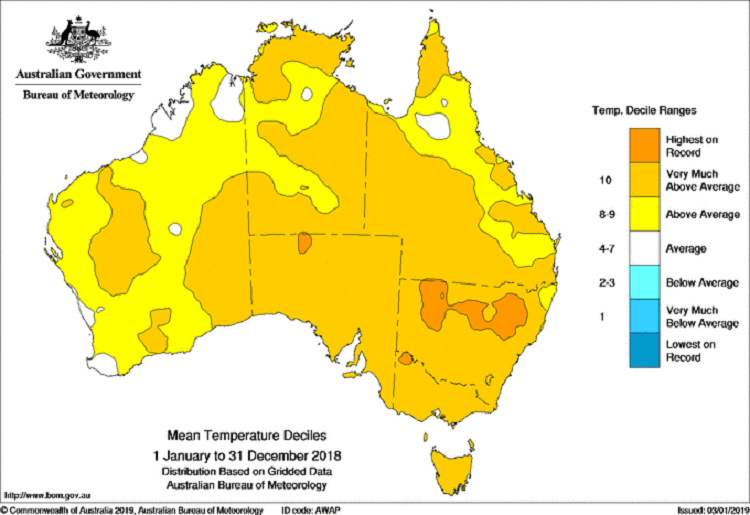Temperatures continue to rise across the nation for 2019
The Bureau of Meteorology (BoM) has revealed last year was Australia’s third hottest year on record.
According to BoM’s climate statement for 2018, some parts of the country reached 49oC, with many areas registering the highest temperatures towards the end of the year.
The facts
“Annual mean temperatures for 2018 were above average for nearly all of Australia, and very much above average for most of the mainland except parts of Western Australia, mostly in the north and west, and parts of the eastern Queensland,” the BoM report said.
“It was amongst the six warmest years on record for all states and the Northern Territory, and the warmest on record for New South Wales.”
Source: Bureau of Meteorology
The recent climate statement also revealed all three of Australia’s hottest years have been in the new millennium, with research showing the country is one of the most vulnerable to climate change.
According to GP and Chair of the RACGP Specific Interests Environment Impacts in General Practice network, Dr Janie Maxwell, climate change can have an immediate impact on our health.
“The cardinal signs of climate change are rising temperature and variability in precipitation, which results in increased extreme weather events, particularly heatwaves, droughts, floods and storms, as well as raised salinity, sea-level rise and storm surges,” Dr Maxwell said.
“From a health perspective, those changes can cause immediate impacts such as heat stress; respiratory, cardiovascular and renal exacerbations from a high-pollution, high-heat day; or new outbreaks or distribution of different infectious diseases.”
___________________________________
House Call Doctor sends a home doctor to you and your family when your regular GP is closed at night and on weekends and public holidays. To book a house call home doctor patients should call 13 55 66 or book online or via the House Call Doctor App.






